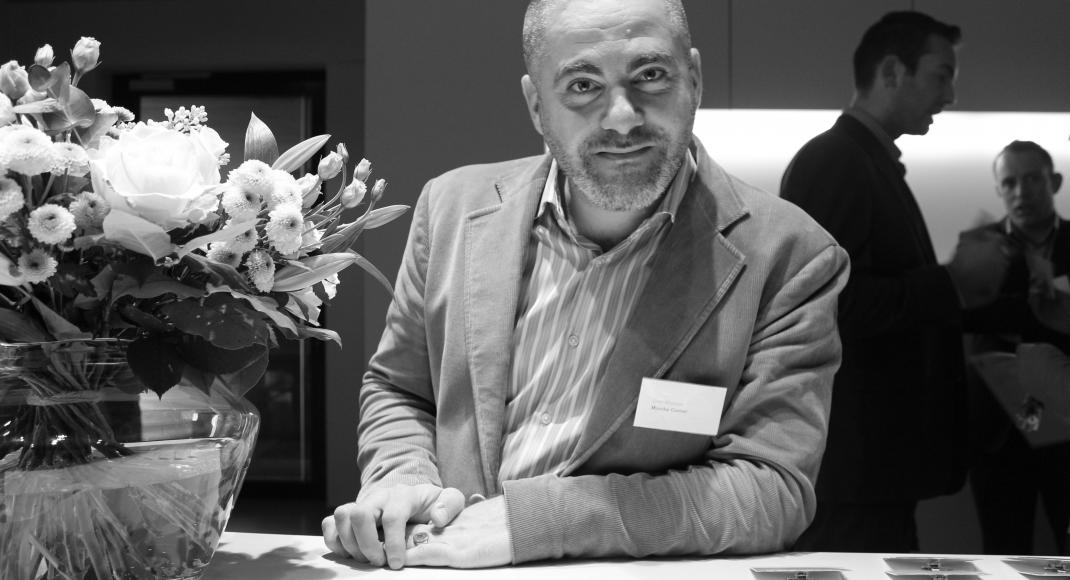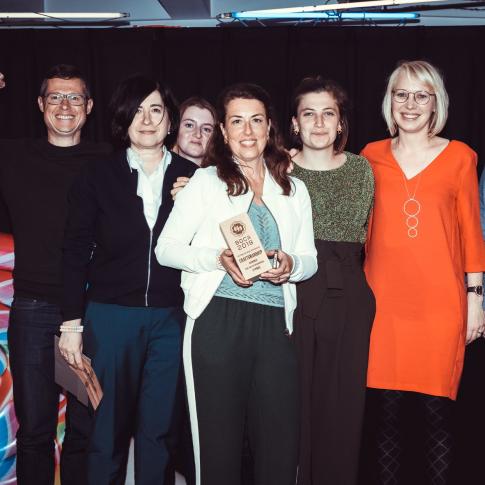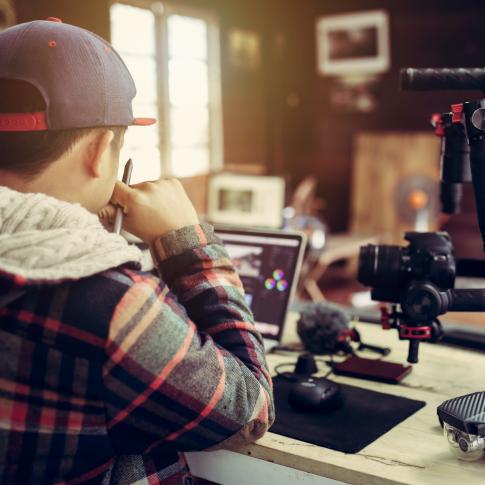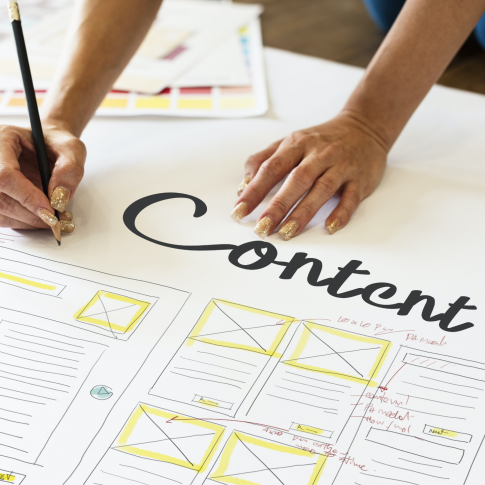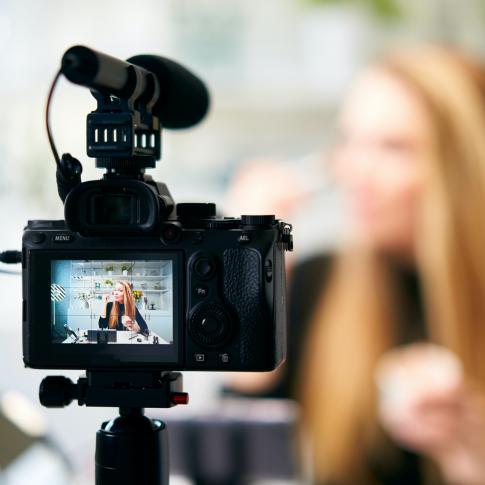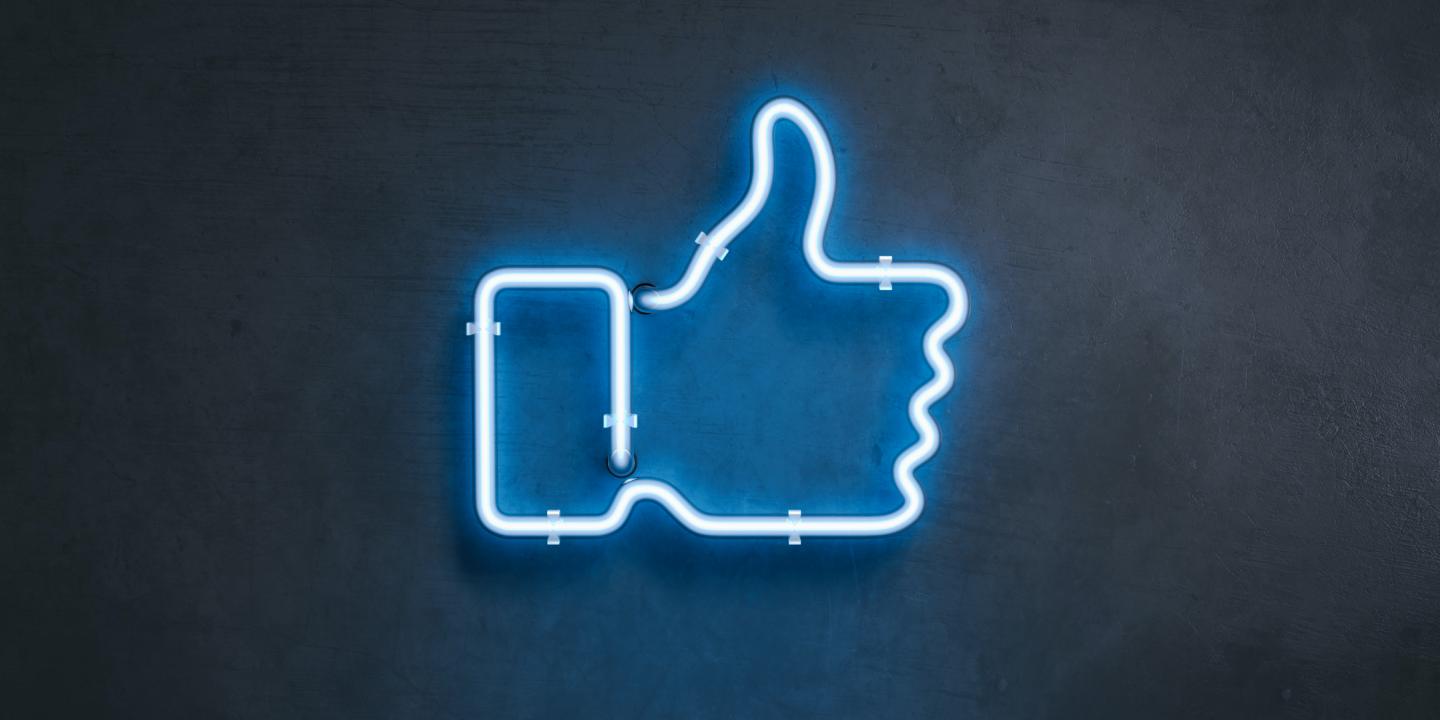
Frederik Hautain
Media psychologist Mischa Coster on why you portray yourself better online than in real life
It is not at all surprising that people are projecting a much more positive image of themselves on Facebook, and this even without being aware of it. Media psychologist, Mischa Coster, explains why this is the case and also why social media have become so firmly anchored into our society.
How does one become a media psychologist?
By studying psychology [laughs]. I used to think that I was made to become a clinical psychologist, but during my studies a new master was introduced, called media psychology. It's different from social or clinical psychology, and at that time I was already passionate about the internet and the effects of media on human behavior, so I turned my hobby into my profession.
Does our behaviour in the online world differ a lot from how we behave offline?
Actually, recent research in the US about personality traits in online versus offline environments showed that there is not much difference between how people are seen through the eyes of others in an online environment – Facebook, in the case of this research – versus an offline one. The personality traits that the observers attached to these people are more-or-less consistent between online and offline.
How do people create an identity for themselves on social media? Even though behaviour doesn't really differ, people tend to post a lot more positive information about themselves on Facebook, which can be dangerous.
Personalities are actually quite the same, but the way in which we communicate is different online than it is offline. It’s true though that we present ourselves in a more positive manner than is the case in real life, which in psychology is called the self-presentation bias. We, as human beings, have a natural tendency to present ourselves in a slightly more positive way than is actually the case.
We do that both offline and online – the problem is that in an online environment you can enrich that information with emoticons, hashtags, pictures, videos and everything. So when I meet you in a bar, and my throat is a little bit sore, and you say 'how are you doing?' I'm probably inclined to say 'well, I'm doing OK!' Because of this self-presentation bias, we always want to present ourselves doing a little bit better. But if you follow me on Facebook, you might think 'oh, this guy has a fantastic life,' because he you only see one aspect: him in the bar, and he's eating sushi, and he's on holiday, and he's having a test drive in a new car.
How would you explain how social media got integrated into our daily lives in such a relatively short time?
I think it has to do with a human tendency to stay connected to one another. People are really social animals. Social media foresees a desire to be social. So, I think it's one of the basic human needs that is being met by these social networks, and that's why people jump on it, create accounts and get it integrated into their lives.
Another reason is that we tend to measure our own sense of well-being in part against the people around us. So, when we're at a restaurant, for instance, we look around and if we see all these happy people, we might feel a little bit sadder because other people are happier than we are. Or if we see all these serious people and we are in a good mood, we feel extra good about ourselves.
When you transport that to a social network environment, there are many more opportunities to see what those around you are doing and feeling, and how they are going about their lives. Our basic need for social comparison to figure out 'are we happy' or 'are we not happy', is amplified much more by the use of social media.
Since social media hold a great deal of power in our lives, do you think that, overall, companies today fully realise that power and use it effectively to create products, services or content?
I think there are companies that are already using social media pretty effectively, at least to communicate with their clients or their stakeholders. On the side of real co-creation – and what I mean by that is business development, creating new products together with your customers and suppliers, and the whole community that your company is part of – I think that's not being done as much as it could.
There’s real value in it though, and there's also a big opportunity for a lot of companies to create new things that already have the commitment of a large audience. If I create something together with a company, I feel a part-ownership and a part-responsibility. So the chances are very high that if this thing that I co-created goes public, that I will support it, and that I will even share it within my own network.
Why do you think co-creation hasn’t been taken up as much you'd expect? Perhaps because companies fear that they will have to give up control themselves when they invite their audience to partake in new projects?
I think the control issue is pretty dominant in companies. It doesn't have to do with co-creation solely, but with social media in general. There are still a lot of companies that don't want anything to do with social media because they are afraid that they will lose control. What they fail to realise though is that people are already talking about them – they just don't know it yet.
Coming back to co-creation, you can really add value by using the knowledge, expertise and experience of your clients and your partners. You can still maintain control of the development process for new products or new services if you make it clear to your partners what their position and their role is within the process.
Why is it interesting for consumers like you and me to co-create? Why is our desire to create something together a brand so interesting?
That’s the million-dollar question. I think it has to do with the fact that we like to be involved in the brands that we use, that we like, that we love, that we're a fan of. And co-creation is the ultimate way to get involved, and also be heard by that brand. A lot of big brands are – well, they kind of have a 'magical' touch, you know?
The one that always springs to mind is Apple: it's a brand – I use it, but I can't get near to the organisation itself. Once I start co-creating, all of a sudden I'm inside the organisation and I'm being a part of the brand, instead of only using or buying its products. So I think that's pretty much it: it entitles you to become a part of the brand, instead of just being a fan, ambassador or user.
How much of a factor are reputation and authority for a company to get a huge following – online and in the real world?
They’re pretty important. They're not the same, mind you – reputation is what you earn, and authority is what you get from others who say that you are an authority. So I think authority is a crucial element within the decision process of people.
Once people are in doubt about which brand to choose, they basically look at two things to reduce doubt: one of them is 'does this brand or this person know more about the subject than I do?' In other words 'is this brand an authority?' Or 'what does an authority say that I should do?'. The other one is 'what do singular other people do in the same situation?', which is called the social proof principle.
So, if you have a brand that is not really big yet, that does not have a big following, you cannot use this social proof to get other people to follow you because there are not that many other people following you.
It would be best for a brand to get some kind of authority status – maybe from an external company or an external auditor, or a professor who says that your brand is actually very good, to get people to want to be part of your brand.
